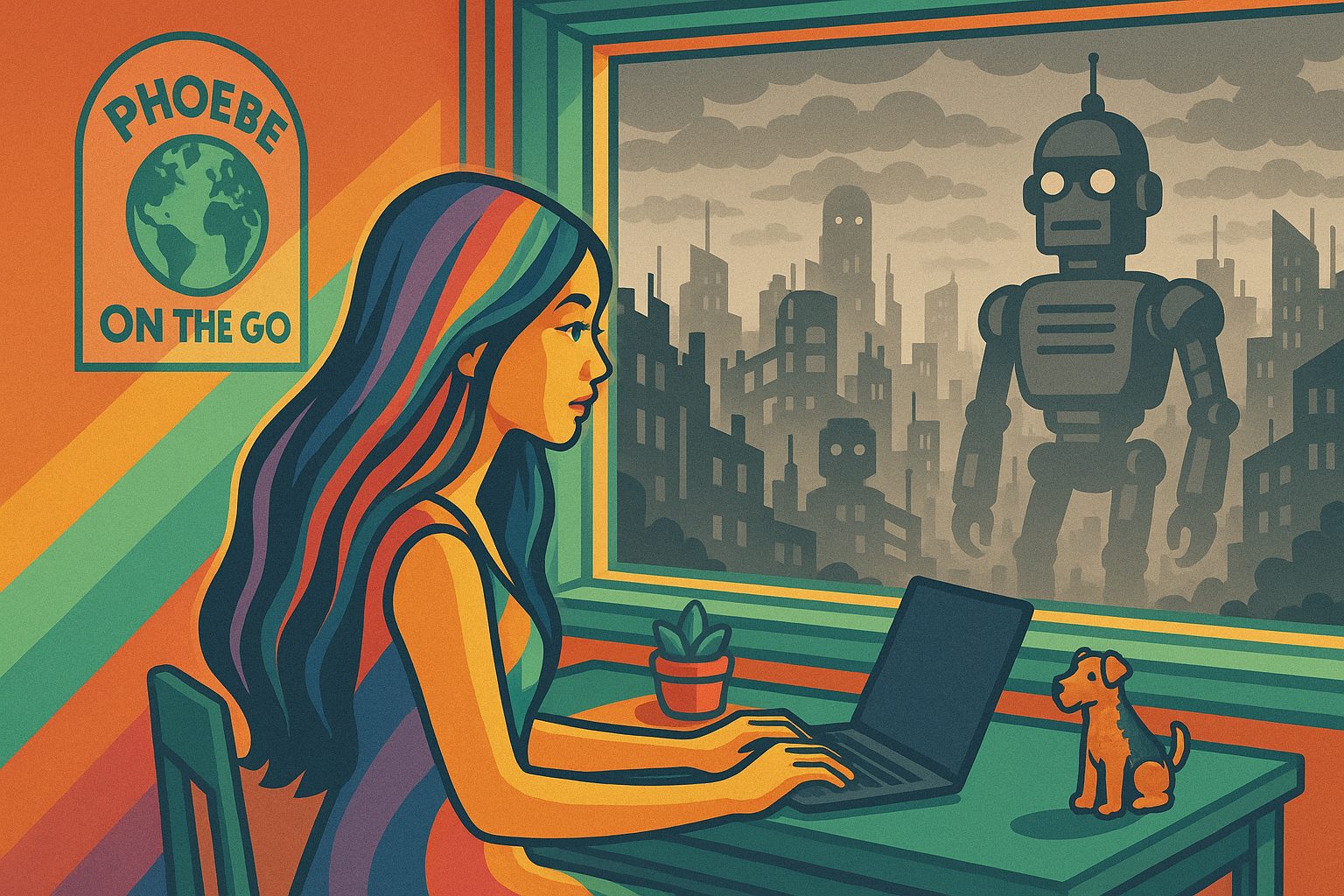The age of AI is here.. and in the enterprise, it's messy.

It's well past the middle of 2025, with a touch over 120 days left in the year. I said today that "it feels like there should be an extra month between August and September"! It feels like the year is rushing past and yet the relentless pace of technology hasn't slowed down at all.
I'm simultaneously excited and terrified by the technological landscape of today. AI is the era-defining technology, there's no doubt about it, but it also brings with it so many challenges that humanity as a whole is woefully unprepared to deal with. We're turning to chatbots to answer our questions, keep us informed, as counsellors and as artistic assistants - or heck, to create the art for us - and the chatbots and their users are spiralling into delusions, hallucinations, and even blackmailing one another. This is not the revolution we were looking for.
The same bleak landscape extends into the enterprise, where businesses are similarly fighting a battle of the usefulness of AI vs. its ability to massively screw everything up.
In the security space, AI can help us identify threats earlier and respond to them automatically. It's a great tool for CISOs who are trying to assess threats and scan for risks in their networks. On the other hand, AI is also being used to generate more effective cyberthreats, from finetuning attacks to poisoning and stealing data.
From a productivity standpoint, it's apparent that generative AI and AI tools are intended to help us be more efficient and effective, but the rise of "vibe coding" and AI code assistants are also potentially leaking our data and IP, creating gigantic security holes, and hallucinating results that can create irrepairable reputational or legal harm.
And there's a large percentage of our workforce who either doesn't understand the technology or sees it as a career threat – or both. The growth rate of AI usage in the enterprise is doubling year on year: but is it really making employees more efficient? And how much is it changing the skills that are needed? While our teams are needed to build AI applications, they're also at risk of being replaced by them, as CEOs worldwide drive "AI-first" initiatives.
With consumer AI tools so widely accessible and with applications in professional contexts, it's becoming more common to blend the edges of consumer technology with the enterprise. Tools like ChatGPT, being so useful for general tasks, can be extended easily from a personal to a business context. Writing an email for personal use is only steps away from writing an email at work, right?
I've always been interested in the intersection of technology and people: tech is reflective of people and context, rather than the "solution". The same tool can be used in different ways for different means. I used to write many a "best practices" guide, and more now than ever we need to caveat these with "only in the following circumstances.."
Technology is a means to an end; a way to convert people and tools into business growth or optimisation. That's why I moved out of purely focusing on technology and more to look at the outcomes: WHY we build, HOW we build, and how we deliver. We need to constantly make trade-offs between the new and the reliable, the speed and the security, and the challenges of new technology vs familiarity of what's known.
And our trade-offs are getting more numerous and harder because the surface area has exploded. Who isn't running a bigger, messier system than you were a decade – or even a few years ago? Environments that were "always on" in the past still had a reasonable change window; that expectation has long gone. And on top of that the security threats have ballooned rapidly from globalisation, to data volume, to our teams' bandwidth.
There is no easy answer and there is no right decision: only the best one given the intel we have. In many cases, there are no decisions that do not result in some consequence we will have to address in the future; it remains to be seen if we can prepare sufficiently today to be ready for those consequences.
Strategies to address the AI challenges of today are numerous and every executive will tell you they have an approach that works for their business. Some run a tight ship, limiting complexity of sprawl but slowing down innovation in favour of safe growth. And others focus on the experimentation vs risk approach, throwing as much as they can into the public cloud and trying to optimise for cost and security through FinOps and SecOps.
There are probably dozens of archetypes and strategies out there but there is no one-size-fits-all.
I don't want to tell you how to proceed, because I don't know you or your business. But I do want to give you the knowledge and insight to make sure you haven't missed anything. I aim to elevate the signals out of the the latest industry trends: the common themes and the big surprises that capture my attention, and should be grabbing yours.
